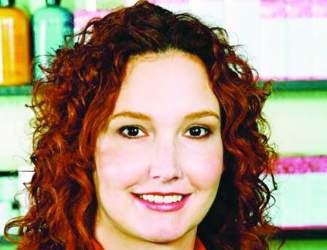FROM JOURNAL OF THE AMERICAN COLLEGE OF SURGERY
General surgery residents reported high levels of stress linked to burnout, but those who exhibited characteristics of mindfulness were less likely to experience this dynamic, a survey-based study has found.
Carter C. Lebares, MD, of the department of surgery at the University of California, San Francisco, and her colleagues aimed to assess the prevalence and root causes of burnout among surgical trainees. They sent a survey questionnaire to 246 general surgery training program directors and asked them to distribute the survey to their residents ( J Am Coll Surg. 2018 Jan;226[1]:80-90. doi: 10.1016/j.jamcollsurg.2017.10.010 ). The investigators focused on the components of burnout identified in the literature (emotional exhaustion, depersonalization, perceived stress, depression, anxiety, and alcohol misuse/abuse).
The survey, a voluntary and confidential exercise, was based on scales and tools to assess symptoms of burnout ( Maslach Burnout Inventory ), stress ( Cohen’s Perceived Stress Scale ), anxiety (Spielberger’s State Trait Anxiety Index), and depression/suicidal ideation ( Patient Health Questionnaire ). The researchers also looked at personality traits that could make the difference between the usual stress of residency and burnout in individual trainees ( Cognitive Affective Mindfulness Scale–Revised ).
A total of 566 surgery residents responded to the survey; 51% were female and 76% were based in an academic training program.
Overall, the survey found that burnout prevalence among general surgery residents was 69%, which confirms the findings of earlier studies of this population, and was significantly higher than rates seen in age-matched peers in the general population and among practicing surgeons.
Burnout was equally prevalent among men and women, but men appeared more likely to experience depersonalization (62% vs. 51%). Emotional exhaustion was lower among lab trainees. Alcohol misuse and abuse was somewhat higher in women (58% vs. 41% and 40% vs. 26%, respectively). Although symptoms of burnout were not strongly associated with training level, PGY3 residents experienced the most (58% reported higher stress, 16% suicidal ideation, 50% high anxiety, and 61% alcohol abuse). A high level of stress was reported significantly less often by lab trainees, but alcohol misuse was significantly greater.
A high level of stress and emotional exhaustion and depersonalization were strongly linked. And all of these elements were strongly associated with moderate to severe depressive symptoms, suicidal ideation, and high anxiety.
“Stress is a double-edged sword, with a dose-response relationship between stress and performance described as an ‘inverted U-shaped curve.’ Although stress is initially stimulating, there is a tipping point when demands outstrip resources and stress becomes overwhelming,” the researchers wrote. Surgical trainees purposefully join a high-stress profession and presumably thrive on a demanding environment, but “that does not make individuals immune to the effects of overwhelming stress.”
The study also found that personality traits had an impact on burnout risk. “Greater dispositional mindfulness was associated with an 85% decrease in the risk of high stress, and a greater trait resilience was associated with a 65% decrease in the risk of high stress.”
The investigators said that mindfulness and resilience can be taught and fostered in trainees. They concluded: “Although it is imperative to understand the institutional factors contributing to this problem, recent meta-analyses suggest that interventions aimed at both institutional and individual factors might be required to arrest this alarming trend and guide necessary changes to the healthcare system as a whole.”
The researchers reported no relevant financial conflicts.
SOURCE: J Am Coll Surg. 2018 Jan;226(1):80-90. doi: 10.1016/j.jamcollsurg.2017.10.010 )




